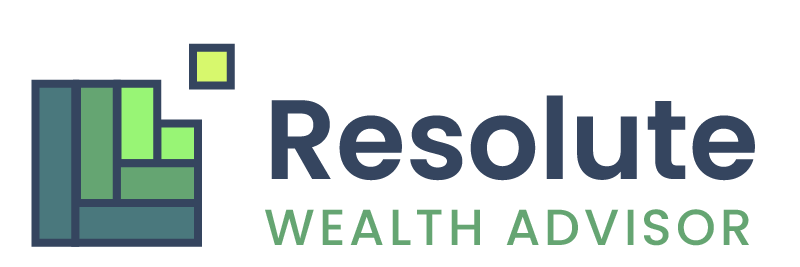Utilizing strategies to build your wealth is integral to achieving financial independence and living the life of your dreams. When thinking about wealth building, you must consider your assets, investments and savings, all of which impact your quality of life and influence how you live. Like any habits, wealth-building habits must be regularly practiced until they become second nature in order to be effective. To do that, you must exercise patience and commitment.
The first step is to figure out what wealth means to you. Get clear on what your goals are and then start employing the habits below to bring them to fruition.
Habit #1: Watch Your Spending
To appear successful, many people feel the need to show a certain version of themselves to the world – often at the expense of their finances. If you take away one key concept from this article, let it be this: Spend less than you make. If you can keep to that philosophy, you will always have a little extra money to invest, allowing your wealth to grow.
On a related note, you should keep an eye on your assets, savings and investments – otherwise known as your net worth. It’s important to have an understanding of where you are in the present, so you can continue to work toward your financial goals. In our digital world, apps and other software exist to make tracking your net worth simple. You can also use a net worth calculator like this one from NerdWallet.
Habit #2: Invest in Yourself
When it comes to building your wealth, you have to be your own best investor. It may sound complicated, but it’s actually quite simple. With each paycheck you receive, put aside a portion of that money into your savings or investments. A good rule of thumb is to reserve about 20 percent of your pay, but that figure can vary depending on your own circumstances. Some may be able to save more than that, while others may struggle to save five percent. And the amount you set aside can change over time, as well.
Remember, the habit of saving your money every pay is more important than the amount you save. That act will keep you steadily advancing toward your financial goals, rather than absentmindedly spending your money on nonessential items.
When you hear advice to “pay yourself first”, it truly means absolutely first – even before paying your bills. That’s why it’s important to have a good understanding of your own finances. You’ll know exactly how much you can afford to save while still living your life.
Habit #3: Get Familiar with Debt
The dreaded four-letter word of finance may cause you heartburn. However, not all debt is created equal, and some debt is actually considered good, especially when you are working to build your wealth.
The trick is knowing the difference between good and bad debt. Credit cards and high-interest loans are generally thought of as bad debt. These can be difficult to repay, and they typically don’t provide a return on investment.
Good debt, on the other hand, could include student loans or mortgages. Both of these are investments with the potential to provide a positive return. Perhaps you land a high-paying job because of your education or the rental properties you invested in are bringing in more income than the debt you had to sustain in order to purchase them. In both examples, the initial debt has the potential to build your wealth.
SEE ALSO: Six Ways to Build Wealth in Your Sixties
Habit #4: Invest Boldly and Wisely
As mentioned above, you should pay yourself first in order to bolster your savings. While it is important to save your money, the interest rates on most savings accounts are quite low. According to a recent report by Bankrate, the national average interest rate for savings accounts is 0.06 percent. As you can imagine, relying on savings alone will be an incredibly slow way to build wealth.
Investing is the best option for making significant strides toward your financial goals. The rate of return for investments, even conservative options, is usually much higher than savings accounts. To make investing less intimidating, make sure you have a plan and that you understand your personal risk tolerance.
When you think about investing, consider options outside the stock market, too. You can find a variety of opportunities for investment – from rental properties to artwork to start-up businesses. Keeping a diversified investment portfolio that aligns with your financial goals and risk tolerance will help jumpstart your wealth building and keep it growing over time.
#5 Create a Financial Roadmap
If you have a destination in mind, you need a plan to get there. The same is true when it comes to your finances. In order to meet goals, you have to first set them, but developing the path to reach them is just as important. Your financial roadmap should include both short-term and long-term goals, and it will likely transform over time as you continue to learn and seek different opportunities.
Reaching any goal becomes infinitely more manageable with a plan. The first step in charting your roadmap is knowing where you’re starting. To determine this, you should assess your current financial status, including your net worth, annual income, and appreciating assets.
Next, it’s time to start considering where you want to be financially – and don’t hold back. Plot out your goals, whether they currently seem attainable or not, and review them often to make sure they still make sense for you. Remaining focused on your goals will help you stay the course and, ultimately, increase your chances to build wealth.
Are You Currently Utilizing Wealth-Building Strategies?
The five wealth-building habits listed above have a timeless quality, and by following them, you will be well on your way to tackling debt and increasing your savings – both of which are important factors for wealth building.
However, it is imperative that you continue to read about financial topics, too. New trends and strategies will appear over time, and the simple act of reading and enhancing your financial literacy will keep your mind focused on the subject of wealth building.
Dedicate a couple of hours each week to learning about finances. Whether you are reading books and articles one evening every week or listening to a financial podcast, you will be absorbing important money concepts that can help you achieve your goals. When you dedicate yourself to maintaining a focus on positive financial habits, you’ll put yourself on the path toward building your wealth – and living out your dreams.






